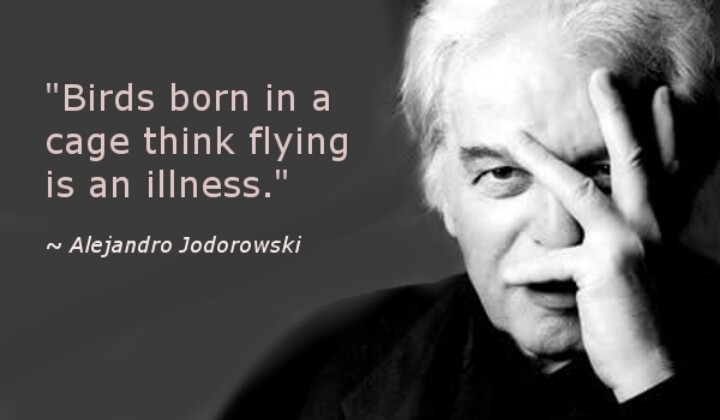Indubitably, we humans are social beings, with a long history of living in bands, tribes, villages, town and cities with other people, and with a variety of social needs. But as we live and move through the social world, our priorities can change. I would even say that we evolve socially.
Studying human nature and coaching people in improving their social confidence and social skills, I came to believe that there are 3 levels of growth for us as social beings. Not all people go through all of them; in fact few people do. But ideally, one should climb all these steps, as each step upward entails social and psychological maturation for the individual, and access to a more fulfilling life.
Here are the 3 levels of growth as a social being, from the lowest to the highest:
1. Seeking Approval and Acceptance
Wanting the approval and acceptance of others is a normal human trait. Nearly all psychologists recognize it as such. Psychologist Abraham Maslow put it in the middle of his famous hierarchy of needs, higher than the need for food and shelter, but lower than the need for self-actualization.
Unfortunately, for many people, the desire for approval becomes an all encompassing need in life. They get stuck at this level, and living life here is not very nice. Almost everything they do is to please others and avoid their disapproval. They feel anxious in social settings, they can’t allow themselves to be genuine, and social interactions are a chore for them.
The solution to move past this level consists in improving their self-image and their social confidence, which will get them to care less about approval, and graduate to the next level.
If you wanna learn how to improve your social confidence and self-image effectively, I highly recommend you check out this instructional video I created, in which I’ll show you my tried, tested and proven method.
2. Seeking Authentic Relationships
Once you’ve learned to care less what others think of you, you move to another level, where the priority becomes having authentic relationships with other people. At this stage, you’re mainly interested in finding people you can naturally connect with. Because you know such connections create the most lasting and fulfilling relationships.
In social situations, you don’t fret too much about approval. Instead, you allow yourself to be yourself (although basic social rules and etiquette still apply), you’re spontaneous and you express your opinions honestly. You seek to genuinely get to know others as well, so you can find natural matches.

It’s a good level to be at. But there is one even higher.
3. Seeking Social Impact
At this level, you’re happy to have authentic relationships, but you want something more. A desire to have an impact on the world, to make your contribution, begins to emerge and to flourish. And in order to have a meaningful impact on the world, you generally need to have a meaningful impact on other people.
Thus, at this stage, you care about helping and supporting others. But you’re also concerned with engaging people in crucial conversations and changing their views, in getting them to join various causes, in motivating them to take action. Persuasion and influence become key interests for you.
An ever higher degree of social confidence is required to graduate to this level. Because in order to have a real social impact, you need to speak up, to stand up for what you believe, to be willing to disagree, to be persistent and to not avoid constructive conflicts. So again, for help with this, I invite you to check out my presentation on the steps for improving your social confidence.
Also at this level, it’s not about you anymore. It’s about you, others and the world. You’re seeing the bigger picture clearer than ever. This is something that tends to happen naturally once the need for authentic, rewarding relationships at the previous stage have been fulfilled, and as your confidence that you can do something in this world goes up.
When you’re at the first level you are operating from a position of deficit. They’re kind of in a whole. At the second level, you’ve dug yourself out of that whole, and you’re actually trying to raise something stable above ground. At the third level, you’re building your own Eiffel Tower.
I’ve had the privilege of coaching and seeing many people go through these three stages. It’s a very fulfilling experience for them to grow like that, and for me to be able to offer my support. Growth is the one constant that should exist in every person’s life, and when it comes to growth as a social being, as you can see, your attitude and confidence make the biggest difference. With these tools, you can be on your journey.
For more advice from me on improving your confidence and your social success, please join my free newsletter right now.
 For example: I recently learned about a supposed method to predict market trends and make good financial investments, based on something called Kondratiev waves.
For example: I recently learned about a supposed method to predict market trends and make good financial investments, based on something called Kondratiev waves.
 The best way to deal with this thorny issue is to try to learn more about people’s expectations, especially the highly sensitive ones.
The best way to deal with this thorny issue is to try to learn more about people’s expectations, especially the highly sensitive ones. The problem is that just because you happen to be colleagues with someone or live next to them, it doesn’t mean you have that much in common in terms of values. And shared values are the one truly major factor that makes friendships deep, lasting and rewarding.
The problem is that just because you happen to be colleagues with someone or live next to them, it doesn’t mean you have that much in common in terms of values. And shared values are the one truly major factor that makes friendships deep, lasting and rewarding.
 I take a deep breath and I keep going. Eventually I discover that what the other person is trying to convey is the idea that if a love is strong (which is what they call “true love”), than it will never end. They’re basically asserting that the longevity of love can be predicted by its intensity.
I take a deep breath and I keep going. Eventually I discover that what the other person is trying to convey is the idea that if a love is strong (which is what they call “true love”), than it will never end. They’re basically asserting that the longevity of love can be predicted by its intensity. Unsurprisingly, many people’s social expectations are off the charts. Men wanna
Unsurprisingly, many people’s social expectations are off the charts. Men wanna  For example, one of my hobbies is salsa dancing. And I’ve met hundreds of people over the years by going to salsa classes, parties, and events, which are very social in nature. Whenever I go to a new city, I look on the Internet for salsa clubs and salsa parties in that city. In the type of big urban environments I like to travel to, there are almost always at least a couple of them.
For example, one of my hobbies is salsa dancing. And I’ve met hundreds of people over the years by going to salsa classes, parties, and events, which are very social in nature. Whenever I go to a new city, I look on the Internet for salsa clubs and salsa parties in that city. In the type of big urban environments I like to travel to, there are almost always at least a couple of them.